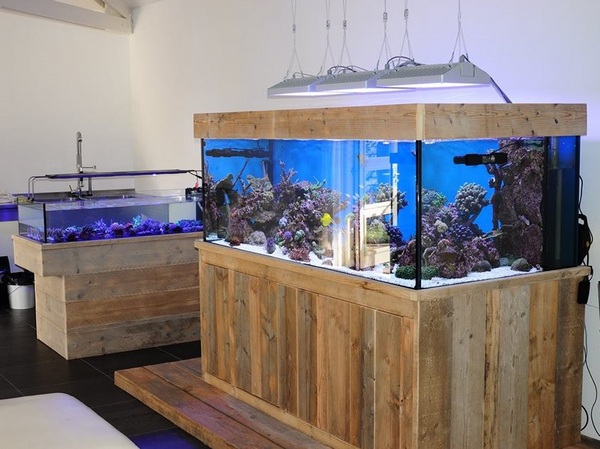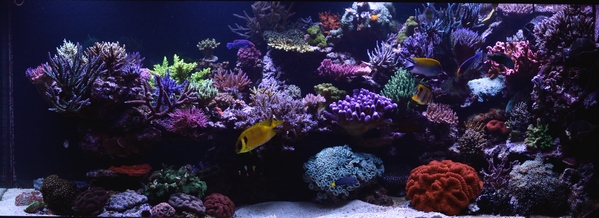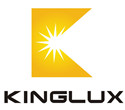Philips Lighting, a Royal Philips company and global leader in lighting, announced the launch of Philips CoralCare, its first dedicated LED luminaire to grow coral in aquariums. Following three years of research into the use of LED light to grow coral, the new Philips luminaire enables coral to grow with brilliantly, vivid colors. Also, it was proven that with similar power and light settings as traditional lighting, corals will grow at the same rate but while maintaining their natural appearance and health. Philips CoralCare makes use of the latest LED technologies enabling more efficient light generation. This results in significant energy savings, on average reducing electricity consumption costs by 30% to 50%. Philips CoralCare will be available for coral reefers and aquarium enthusiasts to buy from the Philips online shop from June 10.
Coral grown with the new Philips CoralCare luminaire has the same vivid color as coral grown naturally in the sea. Previously, aquarium coral grown using conventional T5 and hybrid-LED luminaires had more subdued color.
Philips Lighting chief engineer of CoralCare Research and Development, Luc Vogels commented, “The ability of Philips CoralCare to recreate and even enhance colors of coral grown in natural habitats is made possible via our special light recipe - and optics, a technology that we have pioneered in our labs in Eindhoven in The Netherlands. We’ve patented the innovation** as it really transforms what’s possible for reefers to achieve in aquariums. ”

|
|
Philips Lighting releases LED grow lights for aquarium applications. (All photos courtesy of Philips)
|
The independent Coral Publications marine consultancy undertook research for coral growth with both traditional T5 luminaires and the Philips CoralCare luminaires during five months of tests. During these field tests, four scleractinian coral species were grown with pink, purple and green colors of coral. The research found that the Philips CoralCare LED-only luminaire has been able to grow coral at the same rate as conventional lighting for the first time and with exceptional coral colors.
“Although LED lighting has major energy saving benefits, two major barriers to successful coral growth with LED have been color rendering and light distribution which did not compare with conventional T5 lighting,” said Tim Wijgerde Ph.D, managing director of the consulting firm Coral Publications in the Netherlands. “However, our research has shown that the new Philips CoralCare LED unit easily competes with conventional T5 lighting in terms of coral growth and coloration but on average with 30% energy efficiency savings. Going forward, this technology will benefit more efficient, sustainable coral aquaculture and reduce the carbon footprint of aquariums.”
Dr Jens Standke, a reefer from Dusseldorf, Germany said, “I’ve been using the new Philips CoralCare LED luminaires now for over two months in a trial and th e results have been stunning. The coral I’ve grown using these LED luminaires really does mimic the vibrant colors of coral grown in the ocean which comes from the flexible control you have with Philips CoralCare.” He added, “For example, its phosphorous light brings out amazing fluorescent colors that you get with coral in the ocean at night.”

|
|
Aquarium lit with Philips Philips CoralCare LED lights.
|
Recommended retail pricing (RRP) starts from EUR 749 (US$852.85) for the Philips CoralCare luminaire. A typical aquarium of 140x70x70cm size requires two Philips CoralCare luminaires and a luminaire controller RRP €75.
Philips CoralCare is available from Philips online shop: www.coralcare.best2serve.com
Watch the video from Erik van Dijk, a coral reefer in The Netherlands showing the coral grown using three Philips CoralCare luminaires: https://youtu.be/MUGxegChX80
Details on the testing methods
The Coral Publications research tested the Philips CoralCare LED unit during the last five months. The aim of the research was to evaluate the performance of the Philips CoralCare unit as a light source for marine aquaria to develop coral species. Two 190W Philips CoralCare units were placed above a 490L aquarium (dimensions 200 x 70 x 35cm), as well as two T5 reference luminaires. The aquarium was divided into two sections using a PVC separator, to prevent cross-over effects from each light source.
Philips Lighting has registered the EU patent for LED-based aquarium lighting system with reduced caustics.


